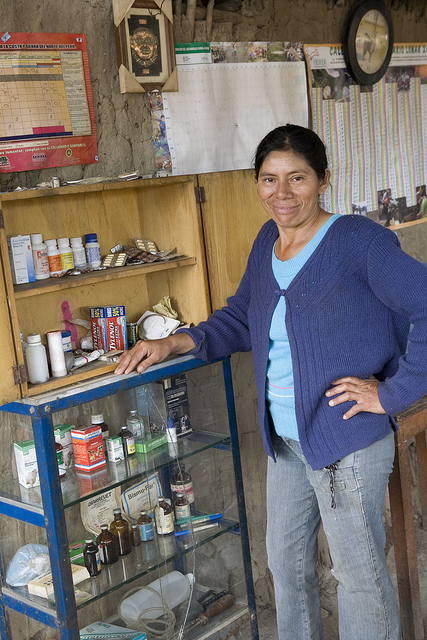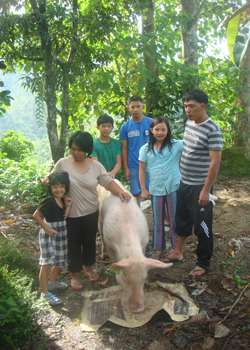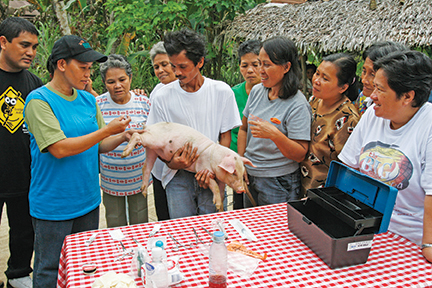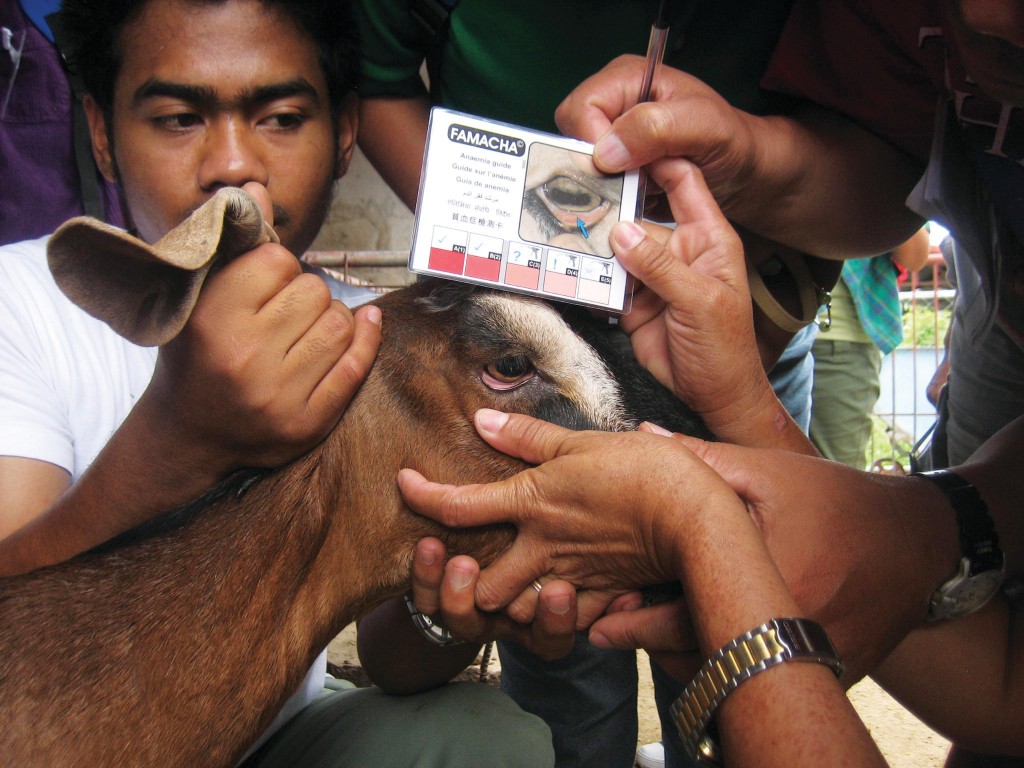When a family becomes a Heifer project participant, it almost always involves animals. We're known around the globe for providing livestock and training to help smallholder farmers overcome hunger and poverty. These animals provide much-needed nutrition, but they also serve as catalysts that improve the family's livelihood through the sale of wool, milk, honey, or the like, allowing a family to improve their living conditions and attain more education.

But these small farmers cannot do it alone. To keep their livestock healthy and viable, families need access to veterinary services and expertise; but in many countries this animal care is limited or non-existent. This is where community animal health workers come in. These "para-vets" learn valuable skills like animal health, husbandry, breeding, nutrition and housing, and they can fill an important need when local professional veterinary care isn't available.
Irene Pandosen is a community animal health worker who helps Heifer project participants in the Philippines. Right after her training concluded in 2010, she was put to the test when almost all of the swine in her community were inflicted with a viral disease that affects pregnant pigs and causes miscarriage, premature birth, or even death of the mother and piglets. Irene coordinated closely with the provincial veterinary office to control the outbreak, and as a result, only four pigs owned by the project participants died (compared to more than 50 owned by non-members).

“The epidemic was the turning point. [Prior to the outbreak] most of the families doubted my knowledge. They would ask me things about animal diseases and how to control them, and then go to the veterinarian and ask the same question to see if my answers and explanations were the same," Irene said. "I take every opportunity to learn so that I can give good service. I talk to veterinarians and research every time I find an opportunity. I take learning as my responsibility to my group and to the community as well.”
Irene has gone on to become a local expert in artificial insemination. This technology means safer and more efficient breeding of pigs — farmers no longer need to transport large boars over poor roads and rugged terrain. Farmers pay Irene directly for her artificial insemination services, and she has seen her income increase about 15 fold as this enterprise has grown to include other members of her family.
This year, you can donate a Community Animal Health Worker Kit to provide quality animal care through our gift catalog. For $200 (or $20 for a share of a kit), you can honor a loved one with a gift that helps people like Irene care for livestock in the communities where Heifer works.
This post is part of our What to Give series, where we’re helping you choose the best Heifer gift for your loved ones. Read previous What to Give posts here, and subscribe to the What to Give series here.
Still don’t know what to give? Check out our entire online Gift Catalog.
Information for this post was contributed by Jun Dom-oguen and Karla Narcise-Rodulfo, Heifer Philippines

